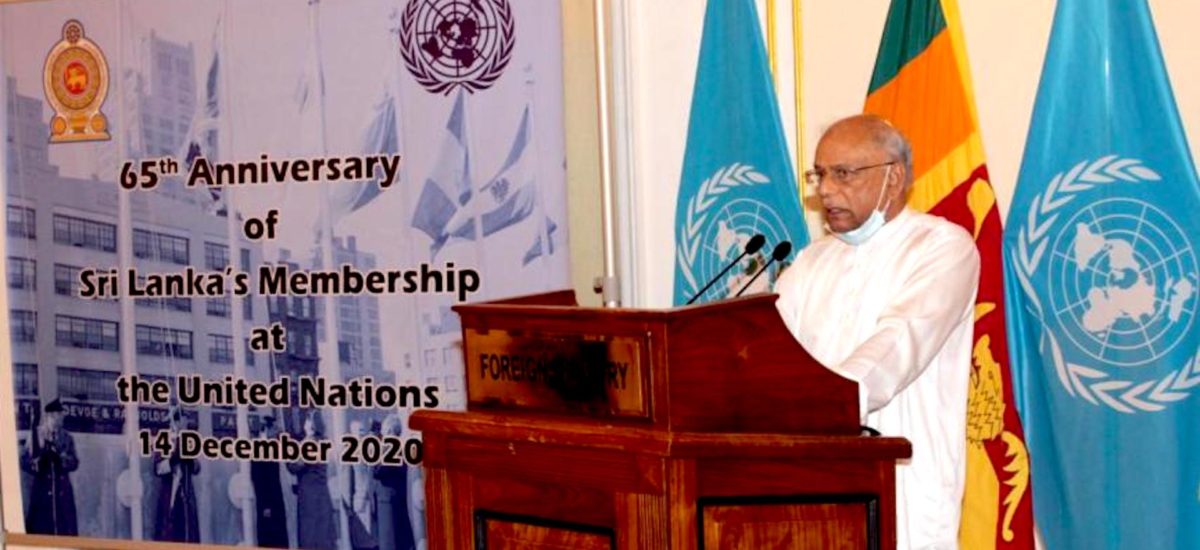Photo courtesy of Netral.News
As the 46th session of the UN Human Rights Council (HRC) winds its way in Geneva, it is now almost certain that the country specific resolution on Sri Lanka, presented by the UK led Core Group on Sri Lanka, will be passed by the Council. The world is looking at Sri Lanka’s human rights track record and trajectory. The occasion has opened up a renewed debate and discourse domestically including an examination of key principles of human rights in Sri Lanka.
Human rights are universal
The key argument put forward by the Government, its political allies and sympathizers is essentially that human rights is an exclusively domestic concern and bases the same on the argument of state sovereignty. However, there is an insufficient appreciation within that argument for the well-established principle of the universality of human rights. Both state sovereignty and the universality of human rights flow from that same body of knowledge which we broadly refer to as international law and custom, which has become increasingly more clearly defined and developed in the last twenty to thirty years. The establishment of the UN and its different agencies, in the post second word war era, sought to establish a rules based international order among the community of nations. The Universal Declaration of Human Rights adopted unanimously by the UN in 1948, the Rome Statute of 1998 establishing the International Criminal Court in 2002 and the 2005 UN World Summit Declaration, among other treaties and international covenants, all further defined and codified the body of international law on human rights, as well as in other areas. To argue for the supremacy of one principal of international law, that of state sovereignty, outside the context of and in resolute opposition to a faster developing body of international law, that of human rights, is not really in keeping with the developments in the global arena and in international diplomacy in the past few decades.
Whose rights are being protected or violated?
An oxymoron or contradiction in terms of the human rights discourse in Sri Lanka is to refer to a resolution on Sri Lanka at the HRC as a resolution “against” Sri Lanka. It is a resolution on Sri Lanka. Depending on what you believe are the merits and demerits of the content of the resolution, you could deem it pro or against Sri Lanka, in this case that continuing human rights violations are good or bad for a country and her people. But it clearly a particular view point, to claim that a resolution that calls for the protection of human rights, reforms of the PTA in keeping with international best practice, implementation of the constitutional provisions for provincial administration, allowing the global practice of final funeral rites to be in accordance with the wishes and religious beliefs of the families concerned and the protection of democratic space and freedoms among other things, to be a resolution “against” the country. It is hardly in the interests of a country or her people when rights are systematically violated with impunity, especially during peace time.
Take for instance the issue of slain editor Lasantha Wickrematunge’s daughter Ahimsa’s recent op-ed in the Washington Post and her call for international intervention for justice for her late father’s assassination. The Government spokesman claimed she was trying to destroy Sri Lanka. It could instead be argued that murdering editors in broad daylight in your capital city and having absolute impunity for it (no one has been arrested or charged) is in fact a more nation destroying action than seeking international justice for it when it is denied domestically. A similar position has been adopted by the leadership of the Roman Catholic church in relation to the investigation of the Easter Sunday attacks when it expressed dissatisfaction with the inquiry Commission’s inability to trace and identify those responsible for the outrage – not the trigger puller suicide killers who perished in the blast but the masterminds, their financiers, support network and handlers.
As many analysts have pointed out, there is also a significant difference between a period of war and a post war period of peace. Sri Lanka is now in its second post war decade and the world is watching to see if we are establishing a just peace to follow our just or justified war. A war is not a unilateral exercise. There are always at least two parties to an armed conflict. But post war, the onus is much greater on the state because it is now the sole authority in respect of human rights and in dealings with its own citizens in a free society.
The difficult question of accountability
Then we come to the most difficult and vexatious issue of accountability for possible war crimes and/or violations of international humanitarian law or “past atrocities” as US Secretary of State, Antony Blinken, stated in his address to the HRC’s current session. Sri Lanka’s position has been clear, in that it has always argued for a domestic process. However, the calls for international intervention or processes have been made because for over a decade we have not demonstrated any forward movement in the domestic protection of human rights, not in just the most difficult areas of the war theatre during the “fog of war”, but anywhere. Even in cases of abductions and rights violations that happened way outside the war theatre, the rhetoric, especially of the current government, has been that while civil servants are subject to the law, the military service is possibly exempt and perhaps above even its own law. The best case in point is that of Sergeant Sunil Ratnayake, who was first arrested by the Army’s own military police for, among other things, slitting the throat of a five-year old child, was convicted in a fair trial and finally had his conviction upheld by the Supreme Court. Today he walks the streets a free man, courtesy of an executive political decision. That might well be against the interests of the people of Sri Lanka; slitting the throat of a child and a murderer walking free. 

